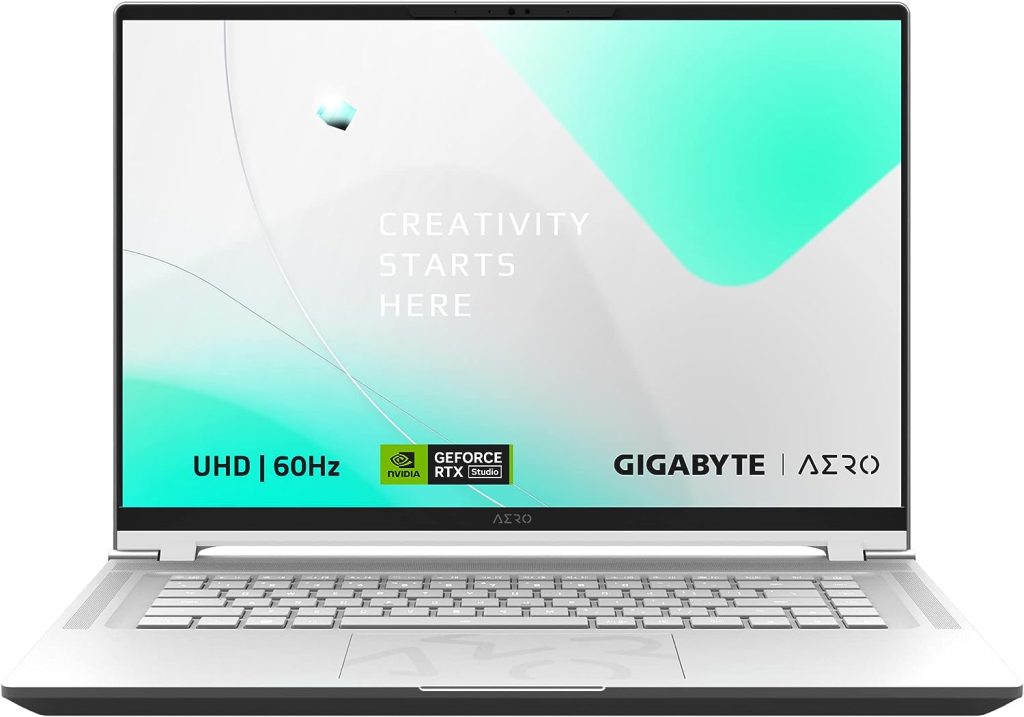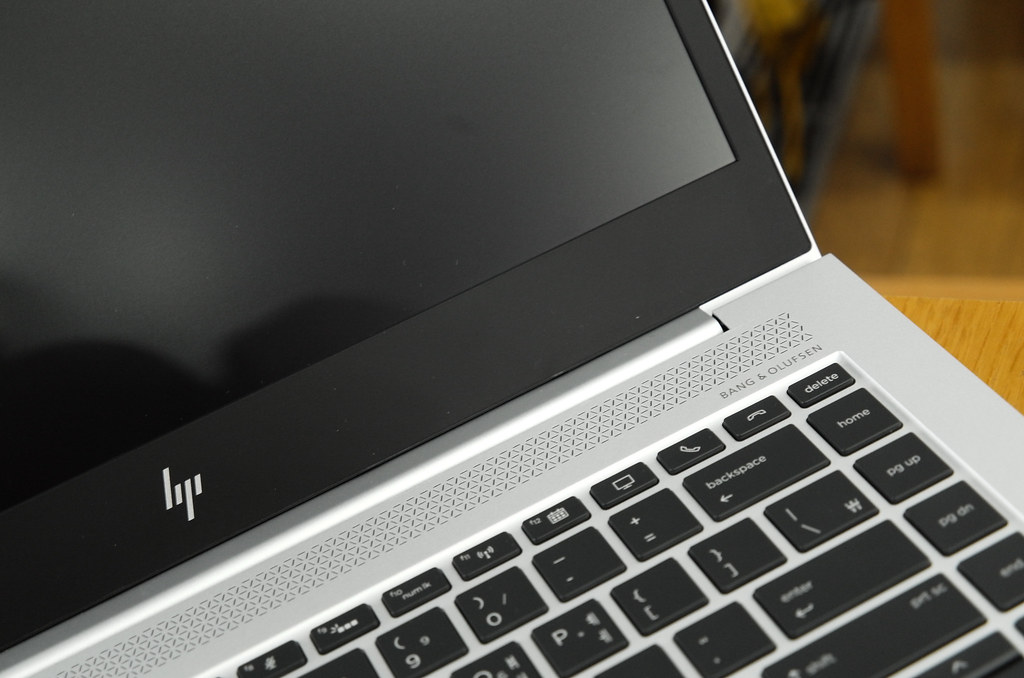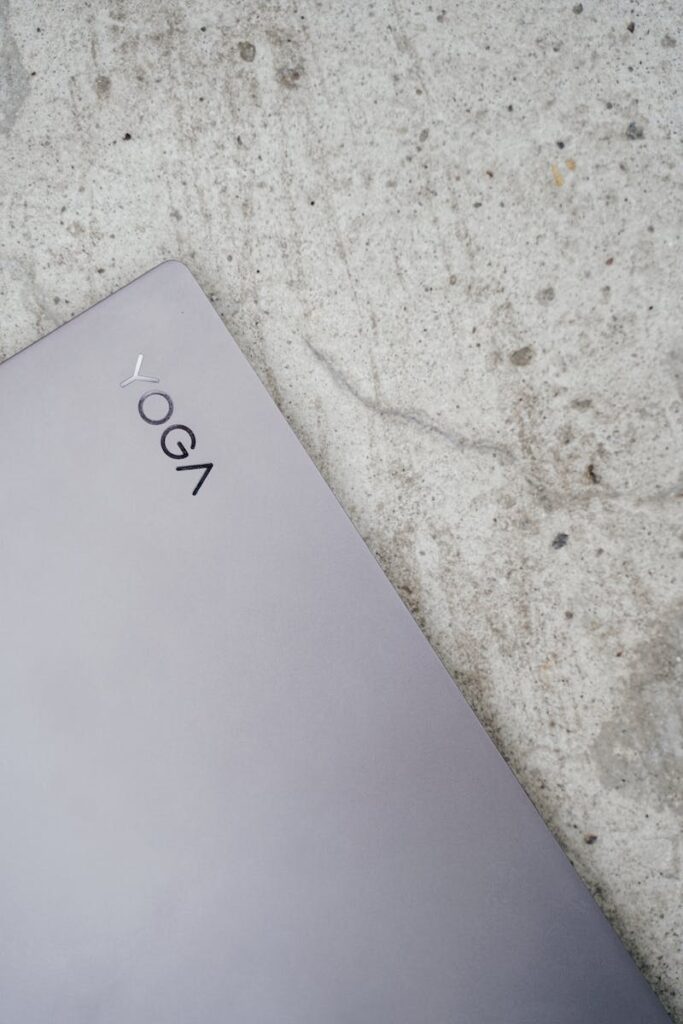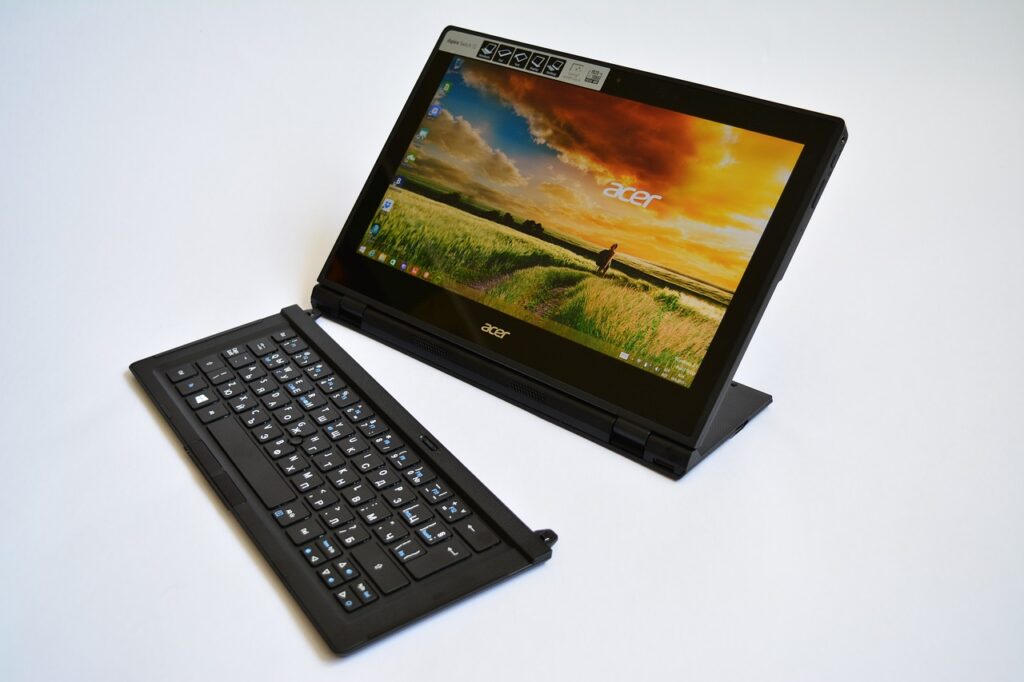This website may contain affiliate links, which means I may receive a commission if you click on a link and make a purchase. While clicking on these links won't cost you any extra money, they will help me keep this site up and running. Your support is appreciated!

Finding the right laptop is challenging these days with so many models and configurations to choose from. When it comes to choosing a new laptop, one of the first questions that comes to mind is what are the best laptop brands that you should go with. The laptop market is dominated by a few major players, but does it really matter which logo is on the lid? Let’s break down the major laptop brands and see if we can determine which are the “best” and whether brand name truly impacts performance and reliability.
Table of Contents
- Apple
- Dell
- HP
- Lenovo
- ASUS
- Acer
- Samsung
- Microsoft Surface
- Razer
- MSI
- Gigabyte AERO laptops
- Framework
- Eluktronics
- Frequently Asked Questions About What Are the Best Laptop Brands
Apple
Well you knew this one was coming.
You can’t talk laptops without mentioning Apple.
Apple has built quite a reputation for premium design, build quality, customer support, long battery life, and can run MacOS along with Windows.
The MacBook Pro and MacBook Air are staples in coffee shops and colleges everywhere.
By controlling the entire hardware and software stack, Apple laptops work seamlessly if you already use MacOS devices like iPhones.
However, you pay a steep premium for that integration and logo prestige.
The starting prices alone for MacBooks deter many buyers, especially when comparably specs Windows machines cost hundreds less.
But for those less price sensitive, Apple makes very capable and gorgeous laptops.
Pros
- Industry leading designs and build quality
- Seamlessly integrated with Apple’s ecosystem
- Great customer support and service programs
- OS consistency between Macs and iPads/iPhones
- Impressive battery life across the board
Cons
- Extremely expensive, especially for components
- Lack of repairability or upgradability
- Limited configuration options
- Require adapters for many peripherals
- MacOS software compatibility still trails Windows
Dell

After years supplying mundane work laptops, Dell has seriously upped their game recently.
Flagship laptops like the XPS 13 and 15 series compete directly with the styling and performance of premium Apples and Microsoft devices, just at more attainable prices.
Dell also offers many mainstream Inspiron models too for basic productivity.
Rounding out their massive lineup, Dell’s Alienware gaming laptop brand leads in that space as well.
From lightweight portables to mobile workstations to gaming powerhouses, few manufacturers can match the breadth and depth of configurations and prices points Dell provides these days.
Their tech support and reliability makes Dell a go-to brand for laptops year after year.
Pros
- Huge array of laptop models and prices
- Excellent tech support services
- Alienware sets benchmark in affordable gaming machines
- Frequent sales help offset generally higher costs
Cons
- Design and styles still fairly conservative
- Base models can feel cheaply built
- Battery life varies greatly across product ranges
HP
HP holds the title for top global supplier of PCs and printers.
The company has been cranking out computers since the early days of computing so they know their way around laptops extremely well at this point.
From budget mainstream laptops to gorgeous cutting edge Spectre models that rival Apple’s design chops, HP has a model lineup to satisfy pretty much any laptop need imaginable.
HP laptops won’t totally wow you but they have a reputation for being dependable workhorses.
Their pricing also very competitive with frequent sales too.
However, such a massive operation does lead to product quality and customer service inconsistencies unfortunately.
But overall HP laptops deliver tremendous value across the board.
Pros
- Massive product catalog with endless configuration options
- Spectre series beautifully designed and reasonably priced
- Always offering promotions and deals somewhere
Cons
- Quality control and tech support varies greatly
- Design aesthetics are hit or miss
- Bloatware and annoying first-run software
Lenovo

Lenovo took over IBM’s personal computing division years ago and have been supplying exceptionally designed laptops ever since.
Their ThinkPad series seen everywhere from college campuses to fortune 500 boardrooms.
Lenovo has excellent brand recognition as a premier PC laptop manufacturer.
From the enduring quality of flagship ThinkPad models to the budget friendly IdeaPad line, Lenovo configures laptops well for business, student, and general users alike.
Unique features like the red pointing stick mouse nub sets their devices apart along with unparalleled keyboard ergonomics. With additional acquisitions like Motorola, they have expanded their engineering prowess significantly.
If you want a sturdy and reliable laptop, Lenovo consistently delivers.
Pros
- ThinkPad set standard for productivity focused laptops
- Keyboard comfort and responsiveness outmatches most competitors
- Student friendly IdeaPad offers solid performance on a budget
Cons
- Average battery life across most configurations
- More limited premium and content creation options
- Plain black plastic designs remain stale looking
ASUS
Initially making its name in computer components, ASUS laptop brand has expanded into manufacturing incredible complete laptops themselves today.
From the budget friendly VivoBook line to innovative dual screen ZenBook Pro Duo aimed at creative professionals to industry leading gaming machines in their Republic of Gamers series…ASUS has all user segments covered.
Their commitment to slimmer designs while still packing stellar performance pushes engineering boundaries.
Experimentation with exotic folding screens and dual display notebooks keeps things innovative too.
They are a bit more understated aesthetically but ASUS laptops offer solid performance for the price.
The brand isn’t as universally recognizable but for tech savvy shoppers, ASUS machines deserve a close look.
Pros
- Excellent value across pricing spectrum
- Gaming-focused ROG line industry leaders
- Constant hardware innovations in new models
Cons
- Frequent model updates fragment product roadmap
- Quality control could be more consistent
- After sales support lacks compared to rivals
In summary for the five brands just mentioned, while personal preferences will always play a role, reviewing the above core laptop manufacturers shows how certain brands have strengths in particular hardware spaces. Apple justifies premium pricing by controlling software and components tightly. Dell Technologies acquired top gaming maker Alienware while offering outstanding support services across all PCs. Lenovo built upon the ThinkPad’s venerable business reputation for robust laptops. And ASUS strives for premium power in slender chassis designs. There is no definitively “best” brand across all metrics. But focusing on key factors like budget, longevity needs, processing muscle, battery expectations etc helps narrow options.
Quick Comparison of the Five Brands Above
| Brand | Pricing | Battery Life | Gaming Power | Portability |
|---|---|---|---|---|
| Apple | $$$$ | Excellent | Weak | Average |
| Dell | $$-$$$ | Above Average | Strong with Alienware models | Average |
| HP | $-$$$ | Average | Light | Light |
| Lenovo | $-$$ | Below Average | Light | Excellent |
| ASUS | $-$$$ | Above Average | Excellent with ROG models | Light |
Let’s check out more major laptop brands breakdown by examining other prominent manufacturers in the portable computing space.
Acer
Acer laptop brand doesn’t get enough credit in my book.
They have built a reputation around affordability without sacrificing quality.
Performance and specs you can get from Acer for under $500 is pretty wild.
Models like the Aspire series offer excellent value with respectable performance for budget conscious buyers.
Their gaming focused Predator line showcases bleeding edge specs and display technology too for richer shoppers.
Cooling fan noise does run louder than premium brands and designs tend to be rather uninspired plastic shells.
But for balancing price and power, Acer succeeds admirably.
Pros
- Budget friendly pricing
- Capable gaming performance with Predator line
- Lots of configuration options
Cons
- Build quality lacks premium feel
- Design aesthetics rather plain
- Fan noise runs loud during intense tasks
Samsung

Samsung laptop brand produces incredible, cutting edge phones, televisions and now laptops like the Galaxy Books too.
Blending performance with gorgeous vibrant OLED touch displays and integrating S-Pen technology, Samsung pushes boundaries.
Plus their Galaxy Book Pro integrates smoothly with your Samsung smart phone too.
Partnering with mobile titan Qualcomm, select Samsung laptops even leverage smartphone level ARM processors for always-connected capabilities.
If you want innovation with top-notch materials like aluminum unibodies at reasonable prices, Samsung deserves attention despite lacking the huge distribution channel of longer tenured PC makers.
Pros
- Cutting edge display technology like OLED and AMOLED screens
- Sleek and innovative designs
- Integration with Galaxy smartphones
Cons
- Pricing gets very high for flagship models
- Limited model options currently
- Weaker distribution channel than top PC brands
Microsoft Surface
Through the flagship Surface lineup, Microsoft themselves offer premium laptops and 2-in-1 tablet hybrid devices.
By controlling both hardware and Windows software, Surface PCs feel remarkably responsive with thoughtful attention to detail and design.
This pays off with impressive performance in a thin and light chassis.
Plus their tablets like the Surface Pro 8 show Microsoft’s flexibility.
Of course, you pay dearly for that systems integration and component quality in Surface laptops.
But for those already embedded in Microsoft’s productivity ecosystem, the Surface tablets and laptops deliver excellent mobility and versatility.
Unfortunately their laptops can get quite pricey, but overall Microsoft’s devices are well designed and reliable.
Pros
- Tight integration between hardware and Windows OS
- Premium high-end materials and attention to detail
- Excellent versatility from 2-in-1 form factors
Cons
- Very expensive, especially for comparable spec Windows machines
- Fewer model options than competition
- Proprietary ports and connections
Razer

Moving into the gaming-focused manufacturers, Razer stands at the head of the pack for portable powerhouses.
While not as mainstream as the others here, Razer has cultivated a stellar reputation among the gaming community for high performance laptops.
Flashy design, crazy specs, innovative displays, if you need a portable gaming machine then Razer is your best bet.
Their laptops lead benchmarks with incredible processing speeds but also incorporate innovations like fully programmable RGB keyboards.
Aluminum bodies house incredible components while maintaining surprisingly slender profiles compared to rival gaming machines.
If you demand no-compromise performance whether gaming, creative workloads or productivity, Razer laptops shine brighter than any competitor in this space.
Just be prepared to pay the premium. All those cutting edge internals don’t come cheap.
But when it comes to gaming laptops, few can compete with Razer (maybe Alienware).
Pros
- Top-tier specifications aimed at gaming
- Innovative design elements like RGB lighting
- Surprisingly thin chassis for performance
Cons
- Very expensive, even for gaming laptops
- Battery life not a priority
- Limited model options currently
MSI
MSI shares the gaming laptop spotlight with Razer, gifting niche gamer aesthetic onto powerful rigs capable crushing AAA titles on integrated displays.
Nvidia RTX graphics and blistering quick refresh rate panels populate MSI’s lineups.
While primarily targeting gaming enthusiasts, MSI strikes excellent balances between performance, features and pricing for creators and power users alike across laptop product tiers too.
They do have other series aimed at business users too.
Reliability does not quite match traditional business PC brands but few can compete outright on portable processing prowess with MSI.
Pros
- Powerful gaming-focused internals
- Flashy gamer aesthetics and branding
- Better value than some competitors
Cons
- Reliability lags business brands
- Thermals and noise could improve
- Most models still look aggressive
Gigabyte AERO laptops

Lesser known than other gaming centric options, Gigabyte does produce capable laptops in their Aero family.
Focusing more on content creators needing significant graphics throughput, Aero laptops are engineered less conspicuously than outright gaming models.
With brilliant OLED touch displays, blazing fast memory and SSD storage, 10th gen Intel processors etc, they handle video production and 3D modeling needs easily.
Most purchasers will be hardcore gamers who actually need searing speeds to drive 4K plus resolutions on the go.
These specs require beefy cooling solutions so GIGABYTE laptops do weigh a bit more than some alternatives.
Battery life unsurprisingly trails for such powerful internals in lighter packages but if you desire portable workstation caliber performance, Aero delivers.
Pros
- Brilliant OLED and touch displays
- Geared for creative workflows
- Packs latest Intel and Nvidia components
Cons
- Gaming not as optimized as rivals
- Expensive for lesser known brand
- Average battery performance
Framework
Finally, Framework warrants a mention for attempting to completely reimagine what a modern laptop could look like in an era of non-upgradeable sealed thin and lights.
Framework leaned into modularity and customization unlike any competitor by designing their lone laptop model to open easily and swap key components like memory, storage, even the WiFi card or display itself.
While processor remains fixed, the Rest of Framework’s design revolves around personal preference and budgets.
An innovative company trying to balance sustainability and right to repair conversations through actual product decisions rather than just rhetoric.
As a startup they have room to grow but absolutely need to be on the radar for the innovating ethos alone.
Exciting to see where they take the concept long term against established juggernauts.
Pros
- Completely modular and repairable
- Innovative right to repair philosophy
- Promise of future upgradability
Cons
- Currently only one laptop offering
- Limited configurability of components
- Major lack mainstream software support

Google only offers a few Chromebook models under their own brand but they are generally well reviewed.
Where Google wins is web and cloud integration. ChromeOS may have limited offline functionality but when connected to the internet, it really flies.
These Google laptops boot up insanely fast and are quite affordable too.
Certainly not for power users but if you live in the browser, a Google made Chromebook might be all you need.
Pros
- Extremely affordable pricing
- Best-in-class cloud integration
- Great for basic browser tasks
Cons
- Weak offline functionality
- Lower build quality on budget models
- Not meant for intensive programs
Eluktronics
A relative newcomer, Eluktronics offers a handful of laptops, mostly aimed at high end gaming.
With unique design cues and branding, they look like gaming machines through and through.
You can configure an Eluktronics system with some truly drool worthy components too.
Only drawback is their astronomical price tags.
But those with money to burn get top tier parts that deliver charts topping frame rates for mobile gaming.
Pros
- Competitive specs against premium gaming brands
- Loads of configuration options
- Tuning potential for max performance
Cons
- Lesser known brand reputation
- Battery life and weight poorer
- Questionable quality assurance
So after breaking down some of the prominent laptop brands in the laptop ecosystem, does the logo really impact performance or longevity? At the budget end, probably not a ton. A $300 Acer will handle basic tasks just as well as a $300 HP. Where the differences start showing is in the premium range. Flagship laptops from Apple, Dell, Lenovo, or Microsoft will outclass budget options thanks to build quality, bleeding edge components, and certification for professional software.
Of course if your main concern is raw gaming muscle on the go, then gaming focused companies like Razer, MSI or ASUS have clear advantages too. At the end of the day, think about the primary tasks you plan to accomplish on your laptop. Research brands that excel in those areas. While everyone has preferences, choosing a quality laptop comes down more to finding the right tool for your needs regardless of badge.
So if you’ve made it this far in my laptop brand breakdown, hopefully you’ve garnered some useful insights. I know analyzing laptop brands and models gets overwhelming quickly. Shoot me a comment if you have other inquiries!
Frequently Asked Questions About What Are the Best Laptop Brands

Q: Which laptop brand is the most reliable?
A: When it comes to reliability, Apple, Lenovo, HP, Dell and Microsoft are typically at the top. Their business-class laptops are built with premium components and undergo rigorous testing. Lenovo ThinkPads, HP EliteBooks, and Dell Latitude series in particular are quite dependable.
Q: Which laptop brand has the best tech support and customer service?
A: Apple consistently receives high marks for their in-store Genius Bar and overall customer support ecosystem. Lenovo also has solid tech support coverage from what I’ve experienced. With Windows laptops it can vary greatly based on model line. Business machines tend to come with upgraded warranty and support options compared to basic consumer models.
Q: Are MacBooks worth the price?
A: For some users definitely. You’re paying more for Apple’s design aesthetic, seamless software/hardware integration, and cachet of the brand. But Apple uses premium components across their lineup so you often get better displays, longer battery life, and quality chassis compared to cheaper Windows options. For basic needs though, a $500 Windows laptop will get the job done too.
Q: If budget is no concern, what is the best overall laptop brand?
A: Tough to single out just one brand when money is no concern. I’d say Apple, Microsoft and Dell laptop brands all have compelling premium laptop offerings. Apple wins on seamless integration of software and hardware thanks to controlling the entire stack. Microsoft Surface devices are tremendously well engineered and optimized for Windows. Where Dell shines is offering business class performance and durability across a vast array of model configurations. Any of those brands have excellent premium options across both consumer or professional needs.
Q: Which laptop brand is best for students?
A: Students need something affordable but reliable for their school work. Lenovo, Acer, and ASUS have good laptop options under $500 that should handle basic student computing tasks just fine. HP also offers plenty of mainstream consumer models aimed at students in need of a dependable machine. Chromebooks are another great low cost student laptop option too from brands like Lenovo, Acer, and ASUS.
Q: Where are the best places to buy laptops?
A: Avoid shady websites when laptop shopping as you may get stuck with grey market items. Well known retailers like Best Buy, Amazon, Newegg, Walmart etc generally offer competitive pricing and easy returns. The manufacturers themselves periodically run sales on laptops too directly from Dell, Lenovo, HP etc. And there are several reputable electronic resellers online such as B&H Photo that offer tech at discount.
Q: When is the best time to buy a new laptop?
A: Back to school season around July/August and the holiday season November/December period typically have loads of laptop deals. Outside of those peak times, look for one off sales events around holidays like President’s Day or Memorial Day when brands will discount laptops for a short period. Registering for manufacturer’s newsletter lists can provide advance notice for upcoming device promotions too.
Q: Are gaming laptops good for other tasks like video editing?
A: Gaming laptops offer superb performance with cutting edge components not found in mainstream models so they can certainly handle intensive computing work like editing high res videos. The gamer aesthetic may not be for everybody and the lower powered integrated graphics can actually be better optimized for creative software than the maxed out geometry chips aimed at gaming speeds. But if raw general performance is the priority, gaming laptops deliver.
Q: How much should I spend on a laptop?
A: This hugely depends on what you plan on using your laptop for. Basic web browsing, office work, even general student use…you can easily get by with a $300-500 machine these days. Stepping up to the $700-1200 opens tons more options suited for mainstream productivity and even moderate creative work and gaming. Once you pass $1500 you squarely enter premium territory with top notch components where budget is less of a limiting factor. Spend based on your needs and means.
Q: How long do laptops last before needing to be replaced?
A: It really comes down to maintenance. Keep your laptop clean of dust build up on the inside, avoid overheating, don’t overload the storage…and a quality mainstream laptop should last 4-5 years before slowing too much to keep up with demands. Business class and premium models may stretch to 6-8 years if properly cared for thanks to more durable components and redundancy features. Gaming laptops tend to have a shorter prime lifespan around 2-3 years when new games demand more processing power.
I hope this set of frequently asked questions has provided some additional helpful context around choosing the best laptop brands based on your individual needs and budget! Let me know in the comments if any other laptop shopping or brand questions come up.





